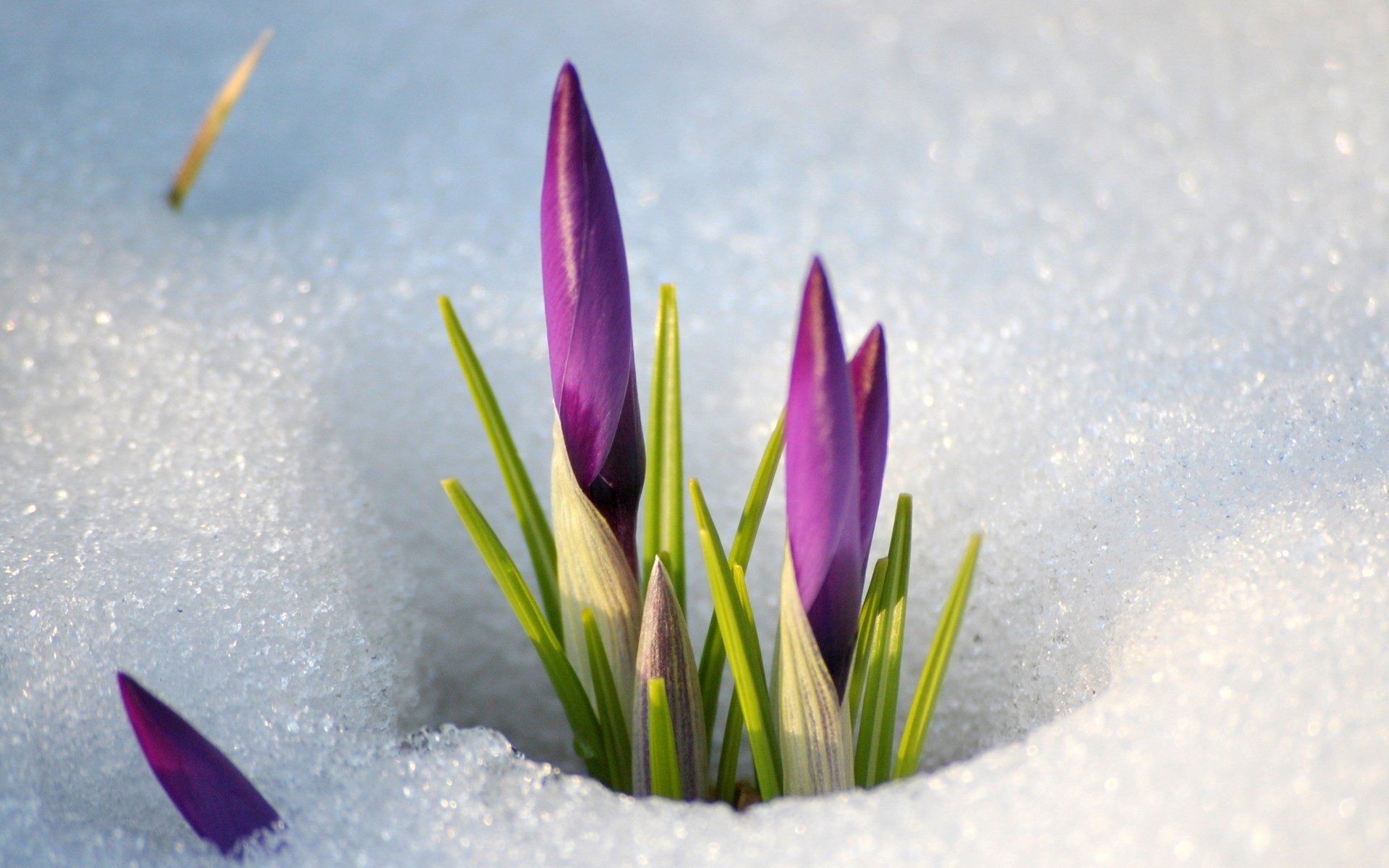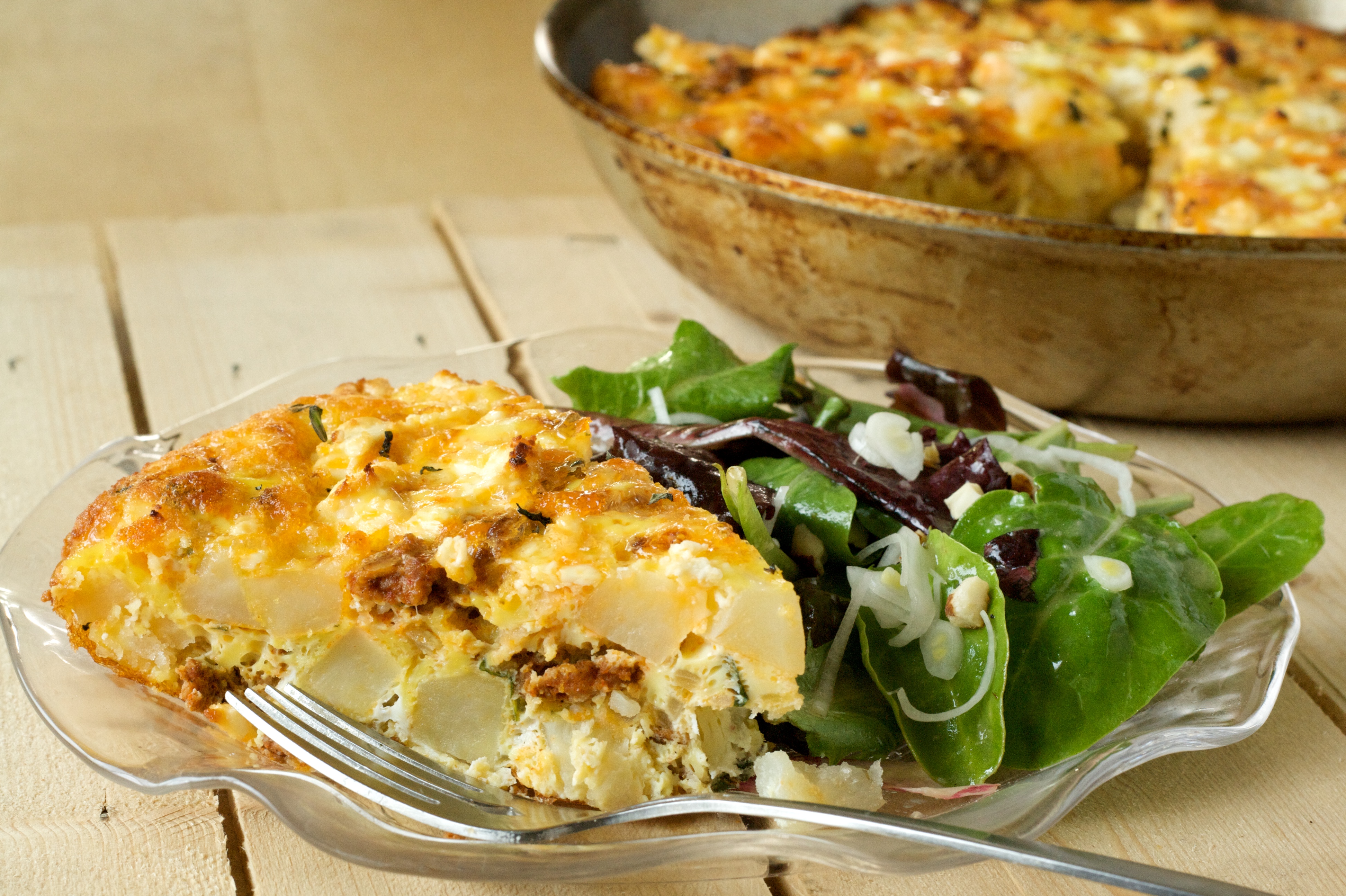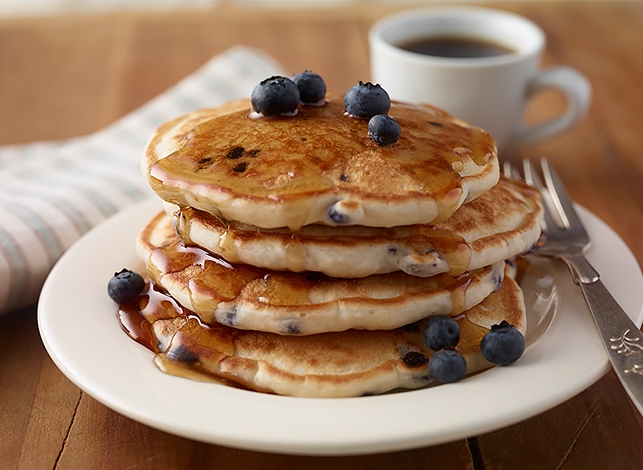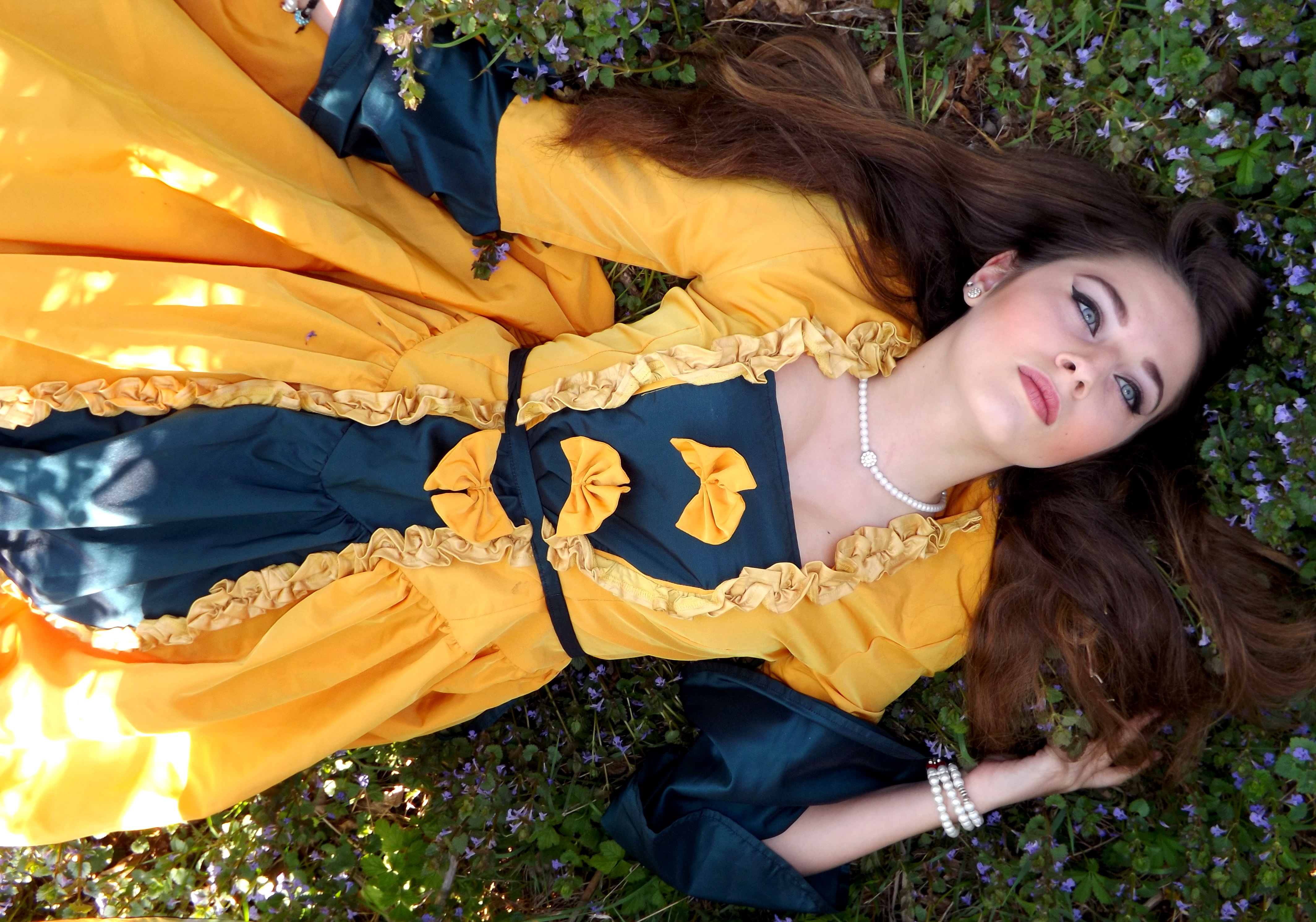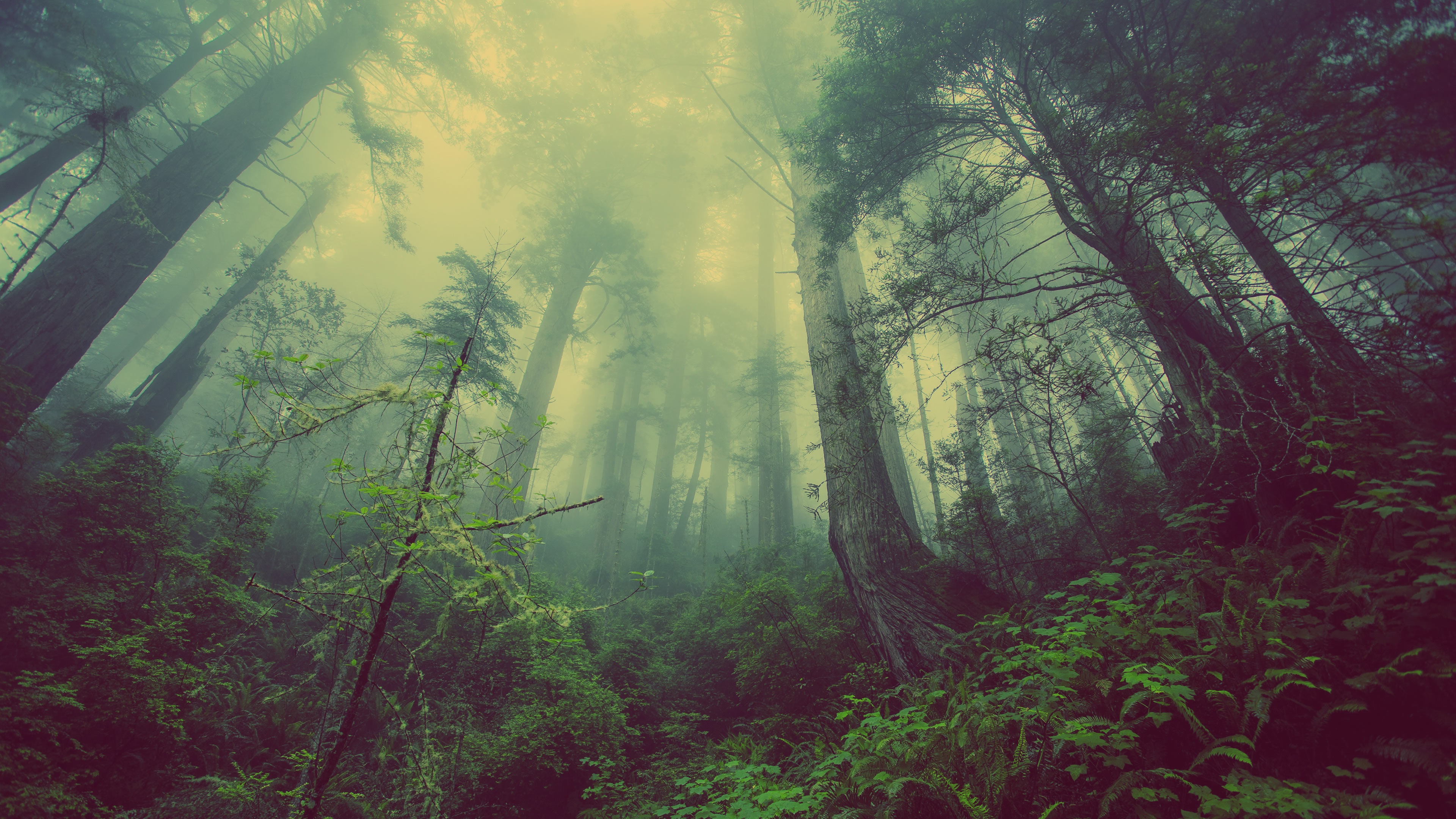The innkeeper starts to cry at breakfast.
He’s telling me the story of his incarcerated brother over plates of French toast and fruit diced so small the cantaloupe is the same size as the blueberries.
The two of us sit alone at a long pine table beautifully set. Thick linen placemats. A vase of hand-picked impatiens. Bone china edged with a terra cotta scroll long faded to pink.
His brother is a convicted murderer.
This happens to me a lot when I dine with strangers. Stories get told.
I am the only guest at the bed and breakfast. Outside, horses graze, and sunlight beckons. New Hampshire in July.
I had arrived the evening before, after dropping my daughter at sleep-away camp, and my plan was to spend a leisurely day exploring the area before heading back home to Boston. I had hoped to eat quickly so I could get going, but then the innkeeper joined me at the table with apologetic shyness and a reluctance, he admitted, to eat alone.
He pours coffee, fresh-brewed and pungent. Offers heavy cream, a tiny bowl of sugar cubes. A miniature pitcher of warm maple syrup. The French toast is perfect: crusty on the outside, milky inside, flecked golden brown and dusted with powdered sugar. It is a beautiful, thoughtful meal, and I am thankful for it.
We start—as most strangers who dine together do—with small talk. The weather. How I slept. How long he’s owned the inn. Looking back, I think it’s this last question that leads us down the rabbit hole, his finances and dependence on the inn being inextricably tied to his brother’s fate. Before I know it, he is telling me the strange and complicated tale of his brother’s conviction eight years before.
I feel a brief, initial trill of alarm when he begins. I’ve watched too many crime shows to not be aware I’m alone in a strange house with a man speaking intimately of murder. But then his obvious love for his brother reassures me, and I focus on the details, all of them thrilling in a distant kind of way. High stakes Kentucky horse breeding, adultery, someone else’s inheritance—they sound like pieces to a puzzle I might hear on NPR, the scope of it far removed from where I sit piercing blueberries with my fork and nibbling perfectly-cooked bacon.
The innkeeper dabs his mouth with a cloth napkin—its delicate floral pattern a jarring juxtaposition to his sturdy hands—and tells me about his brother’s bad luck. The jailhouse informant. The incompetent lawyers. He uses words like failure of the system and final appeal as he passes me freshly squeezed orange juice. He seems compelled to share his story, as if he’s been waiting all along for me to arrive on his doorstep, suitcase in hand, ready to listen.
He’s used his life savings on investigators, he confesses. They’ve uncovered inconsistencies in procedure. Hope, I can tell, hinges on technicalities.
For a moment, I fantasize I might solve the case. There are other suspects to consider: The victim’s husband. Her son. A long line of shady business partners. But then I use the wrong spoon to stir my coffee and realize I am being foolish.
This is real, I remind myself. This happened.
Still, when he starts to cry, I am taken by surprise.
He’s describing the reading of the verdict. The horrible silence just before. The frowning judge. Twelve sets of eyes, averted. The foreman wore glasses, he tells me, as if this might be significant.
The way he describes it, I can see his brother standing there in his Sunday suit, flanked by lawyers, shoulders hunched, back to the gallery. I can imagine the innkeeper seated in the sea of spectators behind him, holding his breath, heart hammering.
“I watched him when they said the word guilty,” he says. “I watched him the entire time. The gavel fell. The bailiff stepped forward. And do you know what my brother did?”
I wait, the fork in my hand an embarrassment.
“Nothing,” he says, shaking his head in disbelief. “He said nothing. Did nothing. Just turned and emptied his pockets, expressionless, then held out his hands to be cuffed.” The innkeeper makes a pathetic gesture over the remains of our meal. Two pale wrists upturned.
His face, when he looks at me, is etched in anguish. “Wouldn’t you have fought? If you were innocent? Wouldn’t you have forced them to drag you out screaming?”
This is where he starts to cry, his face crumpling in on itself. “It’s the only time I ever doubted him. The only time I wasn’t sure…” His chin trembles as if his brother’s surrender is the only unforgiveable part of the story, a capitulation that will haunt him forever.
He can’t fathom giving up, this man who has spent everything, who even now, eight years on, continues to fight. I’ve just met him, and I already know this.
I look down at my plate which is stained with the palette of our meal—brown syrup, opaque grease, the blood stain of berries. I don’t know what to say.
Somewhere, in the brief ensuing silence, the innkeeper realizes he’s shared too much. “I’m sorry,” he says quickly, wiping his nose with his napkin. “So sorry,” he repeats.
The conversation ends abruptly after that. I make a belated attempt to comfort him, but he waves it away and jumps up to clear my plate. With forced good-humor, he mentions antique stores I might want to visit, directions to a nearby lake. He calls out suggestions while he carries our dishes to the kitchen. There’s a clatter of plates, and I picture him standing in the next room, hands shaking.
There are no guidelines for moments like this. No etiquette books which teach how to proceed. I imagine the suggested responses would be as varied as the listeners. For my part, I am awash in reactions I can’t categorize. I want to tell him that what is true for him may not be true for his brother, that character is not interchangeable, that innocence and guilt shouldn’t hinge upon the emptying of pockets, but at that moment, these concepts are mere feelings—nebulous and unarticulated. So, instead, I bashfully thank him for the breakfast, for the considerately chopped fruit, and I walk outside to the inn’s pastures and the sunlight of an unfamiliar place.
Shame follows me. And I don’t know why.
It is one thing to share breakfast with a man. It is another to hear his story and know that when the next guest comes, the words will not have changed. Strangers, while sometimes audiences for confession, rarely give us what we truly want.
Absolution.
Release.
I can offer him neither.
* * * * *
I have thought of that meal again and again over the years. It comes back to me every time I share a table with a stranger. It is not just the innkeeper’s pain I remember, but the juxtaposition of that beautiful breakfast, so painstakingly prepared, and the sense that I was involved in some kind of transaction, that partaking of that food meant hearing his story, whether or not I was capable of providing the comfort he so clearly sought.
Standing outside that bed and breakfast, flush with the awkwardness that follows an unsolicited confession, I had no way of knowing how many meals with strangers were in my future or how many times I would reexperience the temporary intimacy such dining can evoke—intimacy inexorably tied to the food that accompanies it.
There will be a lunch of Beef Wellington with truffle mash and marrow sauce eaten alongside a Kenyan diamond trader in Dubai who openly distrusts the color of my skin yet finishes our lunch with a hug. A boisterous dinner of fried chicken, browned butter noodles, and pepper cabbage at a communal table in Lancaster, PA where my family bonds with a heavily pierced teenager over a shared taste in music. A simple breakfast of toast and jam, sliced meats and cheese shared with a nervous tour guide in a hotel dining room in St. Petersburg, waiters standing by like guards while she carefully chooses her words in English.
Opportunities, again and again, to listen. To hear.
If the innkeeper taught me anything, it was how easily confidences come when we share food with people we will never see again and how heightened that experience can be.
Perhaps it is the food itself—our experience of eating so grounded in sensation that the vocabulary we use to describe it is redolent with double meaning. Raw. Tender. Suck. Swallow. Or perhaps it’s some kind of evolutionary throwback to a time when food was scarce, and our wisest ancestors only dined with those they trusted, a hard-wired faith in others that’s evoked when we share a meal, engendering feelings of communal brotherhood.
Either way, food and the company we share it with nurtures us.
And still, I come back to the innkeeper. Here is a man destined to cook for, and dine with, new faces every day. Is it a wonder that the lines of intimacy have been blurred for him? We, as humans, are social creatures, often desperate to be heard, for our pain to be recognized, and there he is, in his remote, red clapboard home, solitary in his grief, looking for connection, burdened by a story too horrible to carry alone.
* * * * *
I googled his brother’s story. Made note of the names and dates and checked on it from time to time.
Recently, on a cold, winter day with snow eddying around the trees in my front yard, I read that his brother lost his final appeal and will spend the rest of his life in prison.
I picture the innkeeper in his kitchen, chopping fruit, dropping slices of French bread into batter, crying.
I fight the urge to jump into my car. To find him all these years later and attempt to reenact that meal.
I heard you, I want to say. I remember.
We are still connected.
Kathleen Latham is an award-winning short story writer and poet whose work has most recently appeared in Flash Fiction Magazine, The London Reader, Clockwise Cat, and Picaroon Poetry. She currently lives outside of Boston and can be found at KathleenLatham.com. This is her first creative nonfiction piece.
